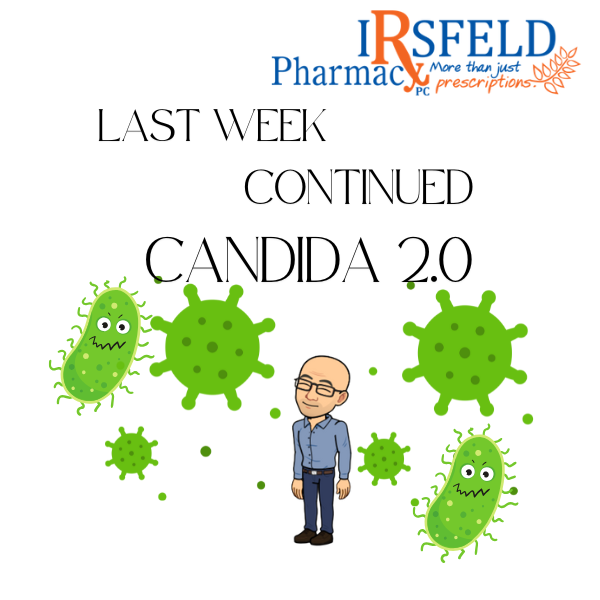Did you think I was telling you "NO"?

Once again, I will discuss a topic that was presented at the conference my staff and I attended a few weeks ago. The topic of the discussion is nitric oxide or NO, and as you will see, it has many benefits in our systems. Before we dive into the topic, I need to correct something I said in my last article regarding the Function Health test and where you can have it drawn. Our patient informed me that the closest facility in Montana is in Great Falls and not Billings. I apologize if I created any confusion.
I am writing this article from a waiting room in Bismarck. My dad is having a procedure, and I am on hour two of a four-hour wait, making this a perfect opportunity to crank out my weekly article.
Nitric oxide (NO) is a remarkable molecule critical to maintaining health and well-being. Though it might sound like a complex scientific term, nitric oxide is something your body produces naturally, and it has a profound impact on how your body functions. From helping your heart pump blood to boosting your athletic performance, nitric oxide is essential to life.
Nitric oxide is a gas that acts as a signaling molecule in the body, meaning it helps cells communicate with each other to carry out essential processes. It was first discovered in the 1980s, and scientists quickly realized its importance. In fact, three researchers won the Nobel Prize in Physiology or Medicine in 1998 for their work in understanding nitric oxide’s role in the body.
Nitric oxide is produced in the body by enzymes called nitric oxide synthesis, which convert the amino acid L-arginine into nitric oxide and another byproduct called citrulline. It is produced in various tissues but is most famously known for its role in the cardiovascular system, where it helps relax blood vessels.
Nitric oxide works like a messenger, sending signals between cells. Its most well-known job is as a vasodilator. This means it helps blood vessels widen, improving blood flow and reducing blood pressure. When nitric oxide is released, it relaxes the smooth muscles in the walls of blood vessels, allowing them to expand. This process ensures that oxygen and nutrients can efficiently reach tissues and organs. I think this is the most important benefit of nitric oxide but it is also involved in many other processes, including:
- Supporting the immune system to fight off infections.
- Helping brain cells communicate, which is essential for memory and learning.
- Boosting physical performance by improving blood flow to muscles.
Because nitric oxide plays a central role in the body, its benefits are wide-ranging. Let’s take a closer look at some of the most important ones.
One of nitric oxide’s key roles is maintaining a healthy cardiovascular system. By relaxing and widening blood vessels, nitric oxide helps lower blood pressure, reducing the strain on the heart. It also prevents blood clots by stopping platelets (tiny blood cells) from sticking together, which can lower the risk of heart attacks and strokes.
Nitric oxide is popular among athletes because it enhances muscle blood flow during exercise. This increased blood flow delivers more oxygen and nutrients to working muscles, improving endurance and reducing fatigue. Many supplements marketed for sports performance include ingredients like L-arginine or L-citrulline, which are precursors to nitric oxide production in the body.
Nitric oxide plays a role in the brain by helping neurons (nerve cells) communicate effectively. This is critical for memory formation, learning, and overall brain health. Research suggests that nitric oxide may even protect against certain neurodegenerative diseases like Alzheimer’s.
Your immune system uses nitric oxide to fight harmful pathogens like bacteria and viruses. Immune cells produce nitric oxide to help kill invading microbes, making it a vital part of your body’s defense system.
Nitric oxide is also important for sexual health, particularly in men. It helps improve blood flow to the reproductive organs, essential for maintaining erecti0ns. This is why medications for ED, like Vi*gra, work by enhancing nitric oxide’s effects in the body.
Since nitric oxide is so important, you might wonder how to ensure your body produces enough. Thankfully, there are many natural ways to boost nitric oxide levels.
Certain foods contain nutrients that your body uses to produce nitric oxide. These include:
- Leafy greens, like spinach and kale, are rich in nitrates that convert to nitric oxide in the body.
- Beets, another excellent source of nitrates. Beet juice is particularly popular among athletes for its nitric oxide-boosting effects.
- Citrus fruits contain vitamin C, a nutrient that helps stabilize nitric oxide in the body.
- Nuts and seeds, especially those high in L-arginine, like almonds and sunflower seeds.
Exercise is one of the best ways to increase nitric oxide production naturally. Physical activity improves blood flow, encouraging your body to produce more nitric oxide.
Some people use supplements to boost nitric oxide levels. Common ingredients in these supplements include:
- L-arginine and L-citrulline, amino acids that are precursors to nitric oxide.
- Nitrate-rich powders like beetroot powder.
- Potassium Nitrate can increase nitric oxide; in certain mouse studies, supplementation increase
- Pycnogenol activates eNOS, an enzyme that produces nitric oxide in our bodies
- Pomegranates potent antioxidant activity protects nitric oxide from oxidative destruction
- Other nutrients that boost nitric oxide boost include magnesium, Vitamin D3, thiamine (B1), zinc, and Adenosylcobalamin (B12).
We are fortunate to work with a company that combines all of these ingredients into one easy-to-take product, Nitric Boost,making it cost-effective and convenient.
Some bad habits, like smoking and a diet high in processed foods, can reduce nitric oxide production. You may find this super interesting; we have bacteria in our mouths that convert nitrates to nitric oxide, and these bacteria may be disrupted by antibiotics and certain mouthwashes. That could be a concern with rinsing to prevent viral infections. Adopting a healthy lifestyle can help maintain optimal nitric oxide levels.
Nitric oxide is a tiny molecule with enormous benefits. From keeping your heart healthy to improving athletic performance and supporting brain and immune function, nitric oxide is essential for overall health. Whether you’re an athlete looking to enhance performance or aim for better health, nitric oxide is critical in helping you feel your best.
Stop by or call the pharmacy for more information on nitric oxide's benefits or help select a product that can help boost production. Please visit my website at www.irsfeldpharmacy.com to find this and other archived articles in the blog section.
Until next time, be vigilant about your health!!












Share On: